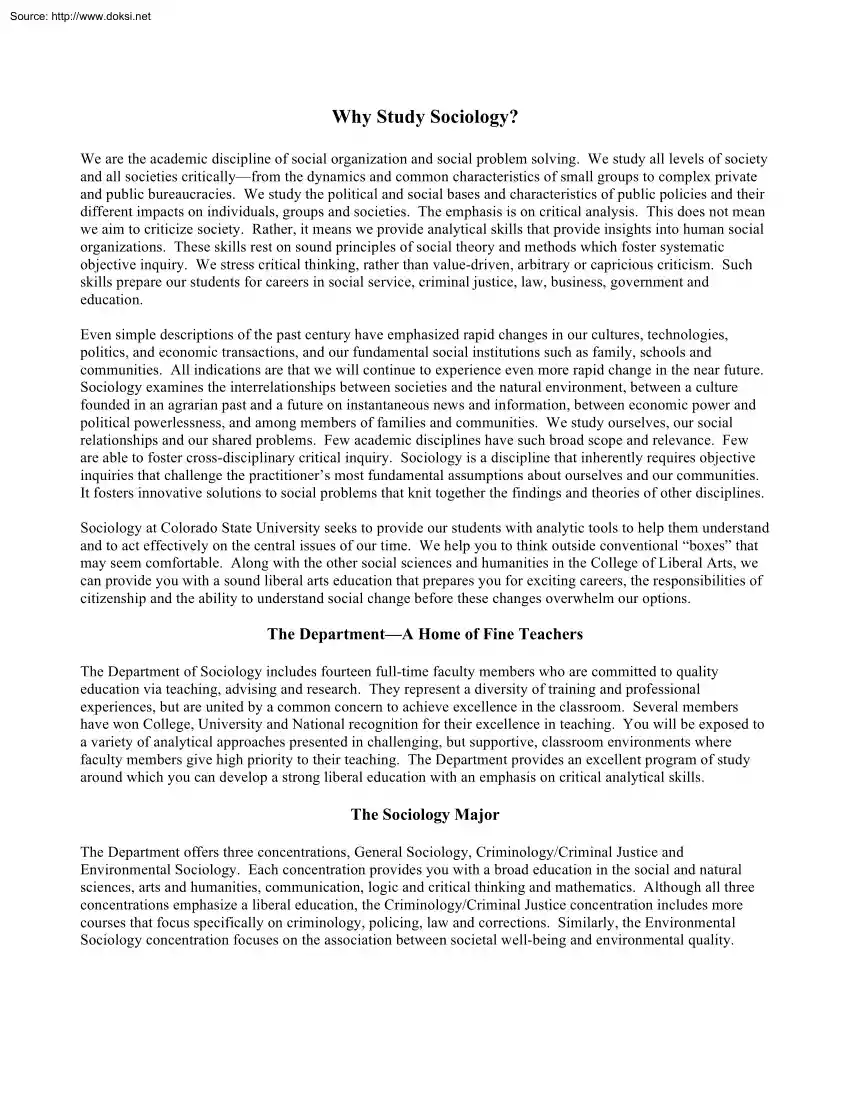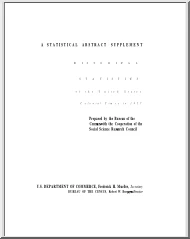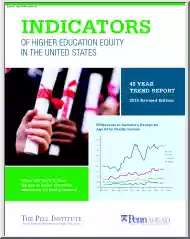Please log in to read this in our online viewer!

Please log in to read this in our online viewer!
No comments yet. You can be the first!
What did others read after this?
Content extract
Source: http://www.doksinet Why Study Sociology? We are the academic discipline of social organization and social problem solving. We study all levels of society and all societies criticallyfrom the dynamics and common characteristics of small groups to complex private and public bureaucracies. We study the political and social bases and characteristics of public policies and their different impacts on individuals, groups and societies. The emphasis is on critical analysis This does not mean we aim to criticize society. Rather, it means we provide analytical skills that provide insights into human social organizations. These skills rest on sound principles of social theory and methods which foster systematic objective inquiry. We stress critical thinking, rather than value-driven, arbitrary or capricious criticism Such skills prepare our students for careers in social service, criminal justice, law, business, government and education. Even simple descriptions of the past century have
emphasized rapid changes in our cultures, technologies, politics, and economic transactions, and our fundamental social institutions such as family, schools and communities. All indications are that we will continue to experience even more rapid change in the near future Sociology examines the interrelationships between societies and the natural environment, between a culture founded in an agrarian past and a future on instantaneous news and information, between economic power and political powerlessness, and among members of families and communities. We study ourselves, our social relationships and our shared problems. Few academic disciplines have such broad scope and relevance Few are able to foster cross-disciplinary critical inquiry. Sociology is a discipline that inherently requires objective inquiries that challenge the practitioner’s most fundamental assumptions about ourselves and our communities. It fosters innovative solutions to social problems that knit together the
findings and theories of other disciplines. Sociology at Colorado State University seeks to provide our students with analytic tools to help them understand and to act effectively on the central issues of our time. We help you to think outside conventional “boxes” that may seem comfortable. Along with the other social sciences and humanities in the College of Liberal Arts, we can provide you with a sound liberal arts education that prepares you for exciting careers, the responsibilities of citizenship and the ability to understand social change before these changes overwhelm our options. The DepartmentA Home of Fine Teachers The Department of Sociology includes fourteen full-time faculty members who are committed to quality education via teaching, advising and research. They represent a diversity of training and professional experiences, but are united by a common concern to achieve excellence in the classroom. Several members have won College, University and National recognition
for their excellence in teaching. You will be exposed to a variety of analytical approaches presented in challenging, but supportive, classroom environments where faculty members give high priority to their teaching. The Department provides an excellent program of study around which you can develop a strong liberal education with an emphasis on critical analytical skills. The Sociology Major The Department offers three concentrations, General Sociology, Criminology/Criminal Justice and Environmental Sociology. Each concentration provides you with a broad education in the social and natural sciences, arts and humanities, communication, logic and critical thinking and mathematics. Although all three concentrations emphasize a liberal education, the Criminology/Criminal Justice concentration includes more courses that focus specifically on criminology, policing, law and corrections. Similarly, the Environmental Sociology concentration focuses on the association between societal
well-being and environmental quality. Source: http://www.doksinet Your major is structured to ensure substantial flexibility in your field of study. After fulfilling all university, college and major requirements, you still have over 30 elective credit hours. You may use these elective credits to obtain a second major, a minor or an interdisciplinary studies certificate. This flexibility allows you to obtain competency in two or more areas and still graduate on time. Sociology majors often minor in other departments within the College of Liberal Arts and in other colleges such as Applied Human Sciences, Business, Agricultural Sciences, Natural Resources and Natural Sciences. The Sociology Minor The Department offers sociology minors in General and Criminology/Criminal Justice for students from other departments who wish to have some experience in an area outside their majors. Minors require fewer credit hours to complete than majors. In addition to students in the Liberal Arts,
students from all other colleges in the university are welcome. Interdisciplinary Studies Programs The University offers more than a dozen interdisciplinary programs including those that compliment the Sociology majorAsian Studies, Environmental Affairs, Gerontology, Latin American Studies, Religious Studies, Russian and East Central European Studies and Women’s Studies. These programs are open to all students regardless of major. Career Opportunities People with liberal education are prepared for a wide range of occupations in business, government, voluntary organizations and academia. As a Sociology graduate you will have learned how to learn You will master the art and craft of following and making arguments, tracking the components of each accurately, seeing the uses and limits of each, detecting false inferences, testing ideas by summoning up supportive and contrary instances and of drawing conclusions disciplined by reasoned evidence. If you should wish to pursue an advanced
education, you will find that a Sociology degree equips you for a wide variety of post-graduate programs in the social sciences, law, business, public administration and planning and education. Sociology opens doors to a rich variety of rewarding vocations. Declaring a Major in Sociology Students may declare sociology as a major or minor by contacting the College of Liberal Arts Advising Center. Please stop by their main office in Clark C-207 or call (970) 491-3117 to set up an appointment. The CLA Advising Center website can be found at http://www.advisinglibartscolostateedu/ For More Information Contact Department of Sociology B258 Clark Colorado State University Fort Collins, CO 80523-1784 (970) 491-6044 OR http://www.colostateedu/Depts/Sociology July, 2010
emphasized rapid changes in our cultures, technologies, politics, and economic transactions, and our fundamental social institutions such as family, schools and communities. All indications are that we will continue to experience even more rapid change in the near future Sociology examines the interrelationships between societies and the natural environment, between a culture founded in an agrarian past and a future on instantaneous news and information, between economic power and political powerlessness, and among members of families and communities. We study ourselves, our social relationships and our shared problems. Few academic disciplines have such broad scope and relevance Few are able to foster cross-disciplinary critical inquiry. Sociology is a discipline that inherently requires objective inquiries that challenge the practitioner’s most fundamental assumptions about ourselves and our communities. It fosters innovative solutions to social problems that knit together the
findings and theories of other disciplines. Sociology at Colorado State University seeks to provide our students with analytic tools to help them understand and to act effectively on the central issues of our time. We help you to think outside conventional “boxes” that may seem comfortable. Along with the other social sciences and humanities in the College of Liberal Arts, we can provide you with a sound liberal arts education that prepares you for exciting careers, the responsibilities of citizenship and the ability to understand social change before these changes overwhelm our options. The DepartmentA Home of Fine Teachers The Department of Sociology includes fourteen full-time faculty members who are committed to quality education via teaching, advising and research. They represent a diversity of training and professional experiences, but are united by a common concern to achieve excellence in the classroom. Several members have won College, University and National recognition
for their excellence in teaching. You will be exposed to a variety of analytical approaches presented in challenging, but supportive, classroom environments where faculty members give high priority to their teaching. The Department provides an excellent program of study around which you can develop a strong liberal education with an emphasis on critical analytical skills. The Sociology Major The Department offers three concentrations, General Sociology, Criminology/Criminal Justice and Environmental Sociology. Each concentration provides you with a broad education in the social and natural sciences, arts and humanities, communication, logic and critical thinking and mathematics. Although all three concentrations emphasize a liberal education, the Criminology/Criminal Justice concentration includes more courses that focus specifically on criminology, policing, law and corrections. Similarly, the Environmental Sociology concentration focuses on the association between societal
well-being and environmental quality. Source: http://www.doksinet Your major is structured to ensure substantial flexibility in your field of study. After fulfilling all university, college and major requirements, you still have over 30 elective credit hours. You may use these elective credits to obtain a second major, a minor or an interdisciplinary studies certificate. This flexibility allows you to obtain competency in two or more areas and still graduate on time. Sociology majors often minor in other departments within the College of Liberal Arts and in other colleges such as Applied Human Sciences, Business, Agricultural Sciences, Natural Resources and Natural Sciences. The Sociology Minor The Department offers sociology minors in General and Criminology/Criminal Justice for students from other departments who wish to have some experience in an area outside their majors. Minors require fewer credit hours to complete than majors. In addition to students in the Liberal Arts,
students from all other colleges in the university are welcome. Interdisciplinary Studies Programs The University offers more than a dozen interdisciplinary programs including those that compliment the Sociology majorAsian Studies, Environmental Affairs, Gerontology, Latin American Studies, Religious Studies, Russian and East Central European Studies and Women’s Studies. These programs are open to all students regardless of major. Career Opportunities People with liberal education are prepared for a wide range of occupations in business, government, voluntary organizations and academia. As a Sociology graduate you will have learned how to learn You will master the art and craft of following and making arguments, tracking the components of each accurately, seeing the uses and limits of each, detecting false inferences, testing ideas by summoning up supportive and contrary instances and of drawing conclusions disciplined by reasoned evidence. If you should wish to pursue an advanced
education, you will find that a Sociology degree equips you for a wide variety of post-graduate programs in the social sciences, law, business, public administration and planning and education. Sociology opens doors to a rich variety of rewarding vocations. Declaring a Major in Sociology Students may declare sociology as a major or minor by contacting the College of Liberal Arts Advising Center. Please stop by their main office in Clark C-207 or call (970) 491-3117 to set up an appointment. The CLA Advising Center website can be found at http://www.advisinglibartscolostateedu/ For More Information Contact Department of Sociology B258 Clark Colorado State University Fort Collins, CO 80523-1784 (970) 491-6044 OR http://www.colostateedu/Depts/Sociology July, 2010




 When reading, most of us just let a story wash over us, getting lost in the world of the book rather than paying attention to the individual elements of the plot or writing. However, in English class, our teachers ask us to look at the mechanics of the writing.
When reading, most of us just let a story wash over us, getting lost in the world of the book rather than paying attention to the individual elements of the plot or writing. However, in English class, our teachers ask us to look at the mechanics of the writing.